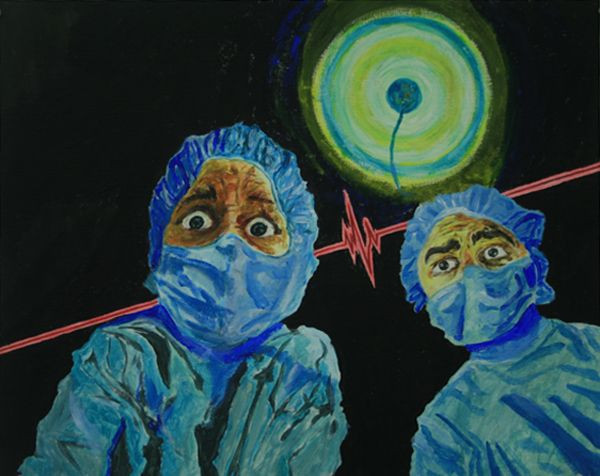Brazilian Woman Became Temporarily Addicted To Stealing Following Cosmetic Surgery

It’s a real life tale seemingly ripped out of the pages of a 90’s sitcom script.
Earlier this January, doctors in the journal BMJ Case Reports published the account of a 40-year-old Brazilian woman who experienced a particularly bizarre set of symptoms following her cosmetic surgery, namely kleptomania. It seems that after the woman returned home from the hospital in late 2013, she was temporarily beset by ”recurring intrusive thoughts” and “an irresistible compulsion towards stealing.”
Somehow, the extensive battery of procedures she underwent — a list including liposuction, breast augmentation, and an arm lift — resulted in blood flow (and oxygen) being cut off to certain parts of her brain, including a region known to be involved in memory and learning, the caudate nucleus. The resulting damage, identified as an “hypoxic-ischaemic brain injury”, then led to her radical, if momentary, shift towards crime.
“Hypoxic-ischaemic brain injury has been associated with a variety of neuropsychiatric outcomes,” the authors wrote. “These include cognitive impairment (mainly memory deficits), language dysfunction, as well as behavioural and emotional changes — such as impulsiveness, distractibility, irritability, etc.”
Even before she left the hospital, the woman complained of feeling disoriented and having trouble with her memory. Afterwards, as reported by Live Science, the kleptomaniac within her was unleashed and led her to scratch the thieving itch while gift-shopping for her daughter’s friend. Unfortunately, she was soon caught by a store security guard and escorted to the police station, only being released after her injury was explained to the police commissioner. The woman, who had no past history of mental illness or substance abuse, was formally diagnosed with transitory kleptomania/impulse control disorder.
Thanks to the brain’s ability to “rewire” its neural connections and heal itself, the urge faded away on its own within the span of a few weeks, a common conclusion to these sorts of injuries — even if its side-effects this time around were especially rare. According to the authors, there’s at least one other documented case of newly formed kleptomania emerging after this specific sort of brain damage.
Of course, it’s hardly the first time that a brain injury has been implicated as a potential catalyst for problematic behavior. Earlier this February, Yale scientists speculated that a traumatic brain injury (TBI) may have been responsible for 16th century British monarch Henry VIII’s sudden personality shift during the last decade of his life, and other research has found that criminal offenders are more likely to have a history of TBIs when compared to the general population.
Source: Nascimento F, Guebert M, Rizelio V, et al. Kleptomania following hypoxic-ischaemic damage to bilateral caudate nuclei. BMJ Case Reports. 2016.



























